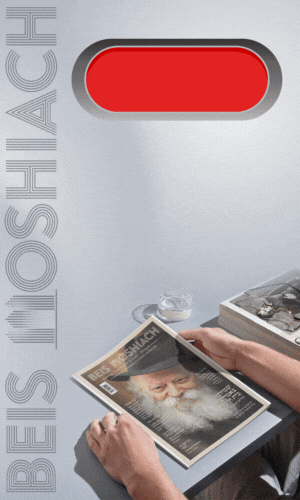‘A Place to Sleep:’ Chabad in Moldova Turns Resorts into Refuges for Fleeing Ukrainians
Since the Russian invasion began a month ago, Chabad’s Moldovan arm has assisted thousands of refugees, and is currently caring for 250. Most stay for between five days and two weeks before they find housing in Europe, Israel or elsewhere • Full Story
Lauren Hakimi/The Forward
Chabad is sheltering and feeding Ukrainian refugees at five resorts in Moldova, which shares a border with Ukraine. Since the Russian invasion began a month ago, the Orthodox Jewish group’s Moldovan arm has assisted thousands of refugees, and is currently caring for 250. Most stay for between five days and two weeks before they find housing in Europe, Israel or elsewhere.
“Our place is to give them a hug, soup, food, a place to sleep, and make sure that they are strong enough to make decisions for their future,” said Rabbi Zushe Abelsky, who is overseeing the operation, which is fueled by donors from around the world. The Forward spoke with him and his son, Mendel, who is fundraising for the effort.
This interview has been edited for length and clarity.
How do you turn a resort into a refugee center?
Zushe: Today, people are fighting over every bed in Moldova. So we needed some politicians to get involved and get us in touch with the owners of those resorts. Luckily, now is not the season for people to go to such places; it’s still a little bit cold. Basically, we make a commitment of paying every night for the full resort or the beds that they’re giving us. We hired a whole new crew to help because we need to be on the ground every day. We have people coming into each resort, speaking to the people, understanding what they need for the day and helping them out. Sometimes people need a doctor; we take them to the hospital. Some people come with very limited clothing. One guy came to me and said, “Listen, I’m wearing my son’s sneakers; by mistake, I took them with me.” We had to buy new sneakers for him. So you have to listen to each of them, and we have 10 people now whose job it is to do that.
How are these refugee centers different from others?
Mendel: We have five locations that, if a person wants to go on vacation, this is the place to choose. It has a swimming pool — this is not comparable to anything else that’s being done. A lot of people, in their head, they say “refugees” — they take a lot of mattresses, they’ll go to a gym, put everyone on the floor and tell them “sleep.” And just imagine the refugees themselves: they were just on a bus for 50 hours, they lost all their possessions. They lost their dignity. So our responsibility is not just to give them a bed. We want to give them their life back.
How do refugees find you?
Zushe: There’s a whole operation to get people out of Ukraine. They let us know when people are coming to the border. So if two buses are coming today, we know to send two buses to the border to welcome them. We take them to the synagogue in Kishinev, we give them a hot meal and they continue on to one of our refugee centers. The next day, after they’ve slept and ate, we’ll take it a little bit further. “OK, so what’s your plans?” It’s a whole operation to make sure that they can plan their future and be relaxed when making decisions.
Are you taking non-Jewish refugees too, or only Jews?
Zushe: We don’t check. Someone wants a hot plate of soup, he gets it.
People stay in your center for days or weeks and then move on –- to where?
Zushe: Everybody makes this choice based on family, friends and what works for them. We let them make the decision on their own, and then we help them accomplish it. It’s not our place to tell them what to do. Our place is to give them a hug, soup, food, a place to sleep and make sure that they are strong enough to make decisions for their future.
Does everyone have a destination? What if they don’t?
Mendel: Most people want to go to Europe, America, and Israel. On the other hand, there are a few that don’t have the means to settle elsewhere, and to say, “I want to go to Germany.” Some people are elderly; they’ve never left Ukraine before. Their finances are not at the highest level. And they don’t know themselves where they want to go. They don’t have family anywhere. Some people didn’t want to leave, but they did because they felt scared for their lives. We recently had a bus of elderly people pull up, and the resort had to clear the first floor for them because these people can’t even walk. They can’t climb stairs. For them to think where they’re going next, they’ve first got to relax for a little bit.
Are you able to do Shabbat services?
Zushe: Shabbat? Honestly, my phone is open 24/7 including Shabbat, because buses cross the border on Shabbat.
What effect is this work having on you?
Zushe: You know, my colleague is the chief rabbi of Odessa. He has an orphanage over there. He moved the orphanage from Odesa to Germany with a stop for a weekend in one of our resort areas. We met each other, and we could not speak to each other. We just cried. And I left. You’re asking yourself, how strong is your heart that it could break a thousand times a day and you continue? It’s just beyond understanding.
45
Join ChabadInfo's News Roundup and alerts for the HOTTEST Chabad news and updates!










































